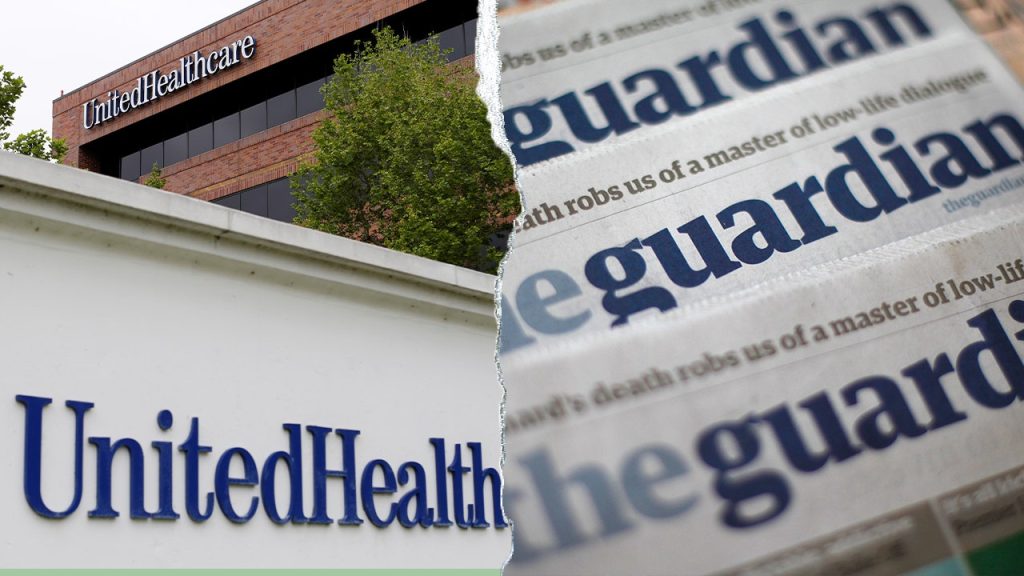UnitedHealthcare has initiated a defamation lawsuit against the British newspaper, The Guardian, claiming that the publication made false accusations regarding its Institutional Special Needs Program for nursing homes. The lawsuit arises from an article published on May 21, which alleged that UnitedHealthcare incentivized nursing homes to limit medical expenses for elderly patients through questionable practices. UnitedHealthcare asserts that these claims not only misrepresent their intentions but also potentially threaten the vital clinician-patient relationship essential for delivering quality healthcare services.
| Article Subheadings |
|---|
| 1) Overview of the Lawsuit |
| 2) Claims Made by The Guardian |
| 3) UnitedHealthcare’s Defense |
| 4) The Response from The Guardian |
| 5) Implications for Future Reporting |
Overview of the Lawsuit
UnitedHealthcare filed its lawsuit against The Guardian in response to an article that alleged the health insurance company was incentivizing nursing homes to enroll elderly patients into a program that restricted access to necessary medical care. Specifically, UnitedHealthcare contends that the article mischaracterized their Institutional Special Needs Program, which is intended to provide onsite medical support for vulnerable populations in nursing homes. According to UnitedHealthcare’s statement, they believe these misrepresentations could negatively impact their reputation and the trust of their patients. The company insists on the importance of maintaining the clinician-patient relationship, which they argue is crucial in delivering high-quality care.
Claims Made by The Guardian
In the article published on May 21, The Guardian alleged that UnitedHealthcare utilized financial incentives to encourage nursing homes to participate in their program, thereby implementing practices that could compromise patient health. The report stated that UnitedHealthcare allegedly provided bonuses to nursing facilities that reduced hospitalizations, suggesting that patients may be denied essential medical services. Furthermore, The Guardian’s investigation claimed that nursing homes shared confidential patient data with UnitedHealthcare, possibly breaching federal regulations. This information raises serious concerns regarding patient autonomy, especially for those incapable of making independent healthcare decisions.
UnitedHealthcare’s Defense
In reaction to the controversial article, UnitedHealthcare vehemently denied the allegations. The company’s legal representatives argue that The Guardian relied heavily on anecdotal evidence rather than factual data. UnitedHealthcare emphasized that their Institutional Special Needs Program is designed to improve health outcomes for seniors through personalized care and enhanced coordination among caregivers. They refuted claims about pressuring nursing home staff to persuade patients to sign Do Not Resuscitate (DNR) orders, stating that such assertions divert attention from the program’s genuine intention to provide care. Moreover, UnitedHealthcare pointed out that The Guardian used what they described as a “heavily cropped screenshot” of an internal email, arguing that when context is considered, it contradicts the claims made in the article.
The Response from The Guardian
In response to the lawsuit, representatives from The Guardian affirmed their commitment to integrity in reporting. They maintain that their findings are grounded in thoroughly sourced material, which includes access to corporate records, public lawsuits, and interviews with various individuals, including both past and present employees of UnitedHealthcare. A spokesperson for The Guardian stated,
“It’s outrageous that in response to factual reporting on the practice of secretly paying nursing homes to reduce hospitalizations for vulnerable patients, UnitedHealth is resorting to wildly misleading claims and intimidation tactics via the courts.”
They further clarified that the supposed inaccuracies within their report were addressed fully and that UnitedHealthcare had not requested any alterations to the representation in their article.
Implications for Future Reporting
This lawsuit opens up broader discussions regarding journalism ethics and the implications of legal action against the press. Experts warn that defamation lawsuits, especially against media organizations, may result in a chilling effect on investigative journalism. As seen in this case, media outlets play an essential role in informing the public about potentially harmful practices within large corporations. This situation underscores the need for robust protections for journalistic endeavors to investigate matters of public concern without fear of retaliation or legal action. The ongoing legal battle may set important precedents regarding the burden of proof in defamation cases involving media reports on healthcare issues.
| No. | Key Points |
|---|---|
| 1 | UnitedHealthcare is suing The Guardian for alleged defamation following a critical article published in May. |
| 2 | The lawsuit claims that The Guardian’s article misrepresented their Institutional Special Needs Program and made false allegations about their practices. |
| 3 | UnitedHealthcare strongly defends its program, emphasizing its role in improving healthcare outcomes for elderly patients. |
| 4 | The Guardian stands by its reporting, highlighting a commitment to factual accuracy and sourcing. |
| 5 | This lawsuit raises concerns about the future of investigative journalism and the consequences of corporate backlash on media coverage. |
Summary
The conflict between UnitedHealthcare and The Guardian underscores the ongoing tension between corporate interests and journalistic integrity. The outcome of this lawsuit could significantly affect how media organizations conduct investigative reporting on healthcare practices, given the risks of legal repercussions. As the trial progresses, observers will be keen to see how the dynamics between media freedom and corporate accountability evolve.
Frequently Asked Questions
Question: What prompted UnitedHealthcare to sue The Guardian?
UnitedHealthcare filed the lawsuit in response to what they claim are false accusations made by The Guardian regarding their Institutional Special Needs Program aimed at nursing homes.
Question: What are the key allegations made by The Guardian against UnitedHealthcare?
The Guardian alleges that UnitedHealthcare incentivized nursing homes to restrict necessary medical care for elderly patients by financially persuading them to enroll in its programs, potentially threatening patient health.
Question: How does UnitedHealthcare defend its Institutional Special Needs Program?
UnitedHealthcare asserts that the program aims to improve health outcomes for seniors by providing personalized care, enhancing coordination among caregivers, and maintaining strong clinician-patient relationships.
